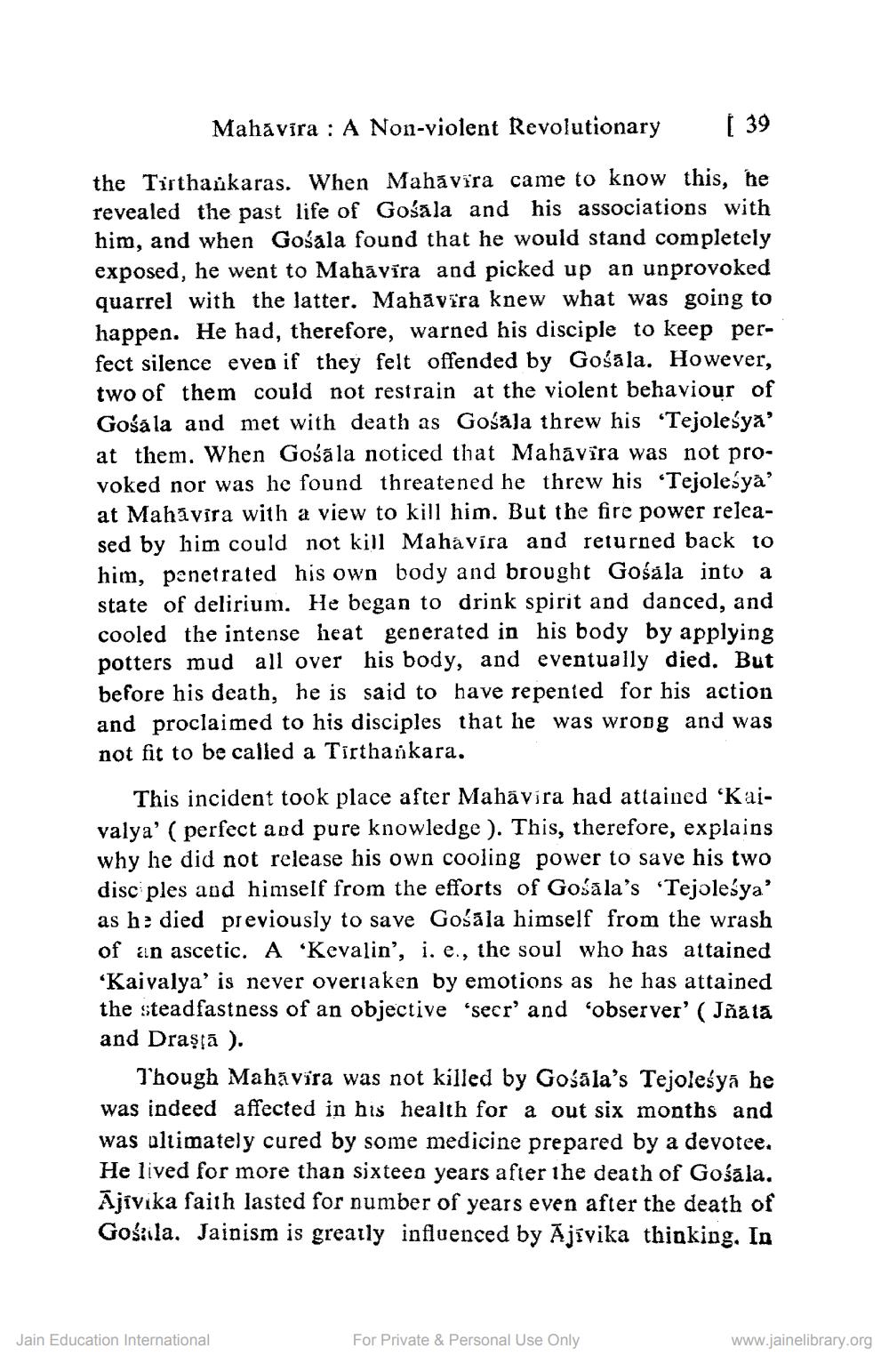________________
Mahavira : A Non-violent Revolutionary
( 39
the Tirthaükaras. When Mahāvīra came to know this, he revealed the past life of Gośala and his associations with him, and when Gošala found that he would stand completely exposed, he went to Mahāvīra and picked up an unprovoked quarrel with the latter. Mahavira knew what was going to happen. He had, therefore, warned his disciple to keep perfect silence even if they felt offended by Gosala. However, two of them could not restrain at the violent behaviour of Gośála and met with death as Gośala threw his 'Tejoleśya' at them. When Gośāla noticed that Mahavira was not provoked nor was he found threatened he threw his 'Tejolesya' at Mahavira with a view to kill him. But the fire power released by him could not kill Mahavira and returned back to him, penetrated his own body and brought Gošala into a state of delirium. He began to drink spirit and danced, and cooled the intense heat generated in his body by applying potters mud all over his body, and eventually died. But before his death, he is said to have repented for his action and proclaimed to his disciples that he was wrong and was not fit to be called a Tirthankara.
This incident took place after Mahävira had attained 'Kaivalya' ( perfect and pure knowledge ). This, therefore, explains why he did not release his own cooling power to save his two disc ples and himself from the efforts of Gośāla's 'Tejolesya' as hdied previously to save Gośála himself from the wrash of an ascetic. A 'Kevalin', i. e., the soul who has attained ‘Kaivalya' is never overiaken by emotions as he has attained the steadfastness of an objective "secr' and 'observer' ( Jñata and Draştā ).
Though Mahā vīra was not killed by Gošala's Tejoleśyā he was indeed affected in his health for a out six months and was ultimately cured by some medicine prepared by a devotee. He lived for more than sixteen years after the death of Gośāla. Ājivika faith lasted for number of years even after the death of Gosila. Jainism is greatly influenced by Ājivika thinking. In
Jain Education International
For Private & Personal Use Only
www.jainelibrary.org




